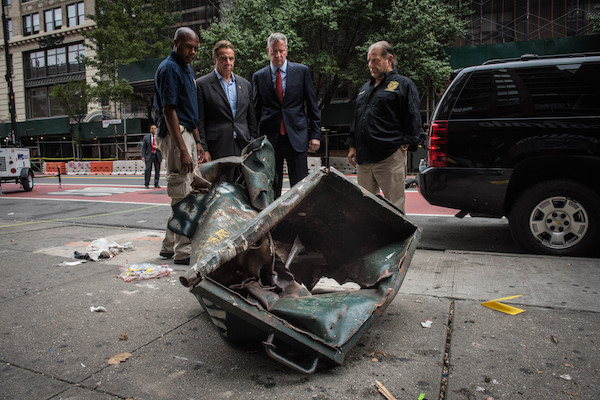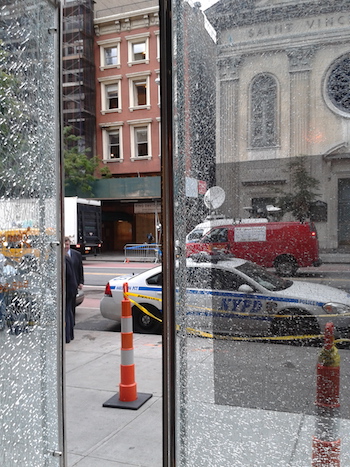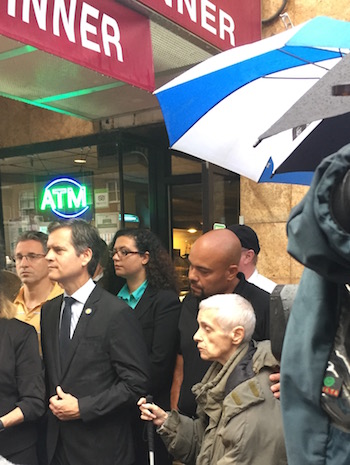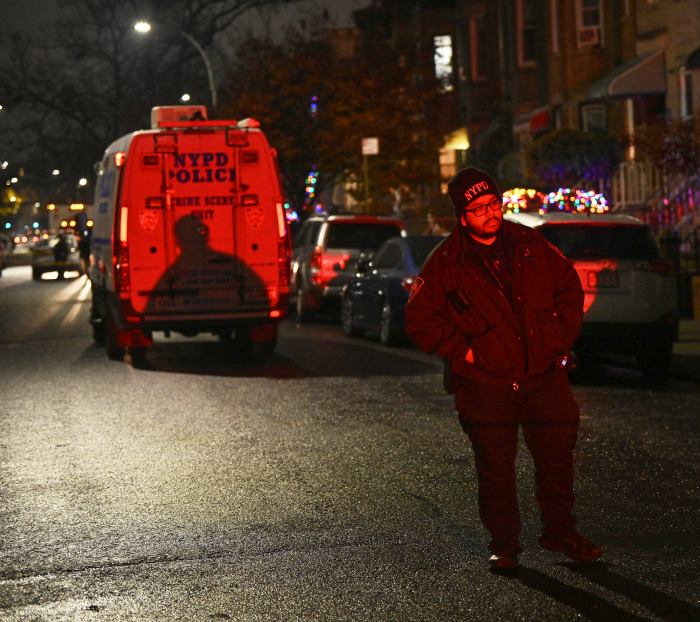
BY JACKSON CHEN | The State Assembly recently passed a bill to restrict access to chemical compounds that combine to create explosives, much like the product that was used in the Chelsea bombing last September.
On the evening of Sat., Sept. 17, 2016, a pressure cooker bomb exploded on W. 23rd St., between Sixth and Seventh Aves., injuring more than 30 people. The bombing was allegedly carried out by Ahmad Khan Rahimi, an Afghani New Jersey man who authorities said was inspired by extremist groups like the Islamic State and Al-Qaeda.
Rahimi, then 28, was linked to another bomb (constructed of a pressure cooker, wires, and a cellphone) found on W. 27th St. that same night, though this device did not detonate. Rahimi is also the suspect in two other non-fatal, bomb-related incidents from that weekend in New Jersey: the bombing of a 5K run for the Marines in Seaside Park, NJ, and the discovery of undetonated pipe bombs at an NJ Transit station.

As the Chelsea incident was unfolding, Westchester Assemblymember David Buchwald had been working on an effort to require licenses to store, use, and buy products that are meant to be combined to create explosives, known as binary explosives. These products, sold as two separate chemicals that are not explosive on their own — ammonium nitrate and aluminum powder — are meant to be combined to create an explosive that is often used in target practice to offer shooters a visible indicator of an on-target hit.
“We regulate fireworks, we make sure that other explosives require a license,” Buchwald said. “This is a product that once two parts of chemicals are mixed, they constitute an explosive under New York State law, so I don’t understand why that isn’t subject to the same scrutiny by New York State and local officials.”
While Buchwald cites the brand of binary explosives named Tannerite as being used in the Chelsea bombing from law enforcement officials and early media reports, the company is vehemently fighting to investigate if their product was used at all.
Steve Yerger, the corporate investigator for Tannerite, said many incidents involving binary explosives gets reported as Tannerite, until it ultimately turns out not to be the brand-name product used. Yerger said the Federal Bureau of Investigations, who refused to cooperate with him, has impeded his investigation into the Chelsea incident. But, the investigator still contends that Tannerite was not used in the bombing last year.
Yerger said that Tannerite was no different than common items like alcohol, gasoline, or ammunition, and that people should be targeting the users — not the product.
But Buchwald added that the binary explosive brand, Tannerite, was used in a number of times across the country leading to injuries and fatalities. And in aiming to preempt a serious incident in New York, Buchwald first proposed this bill in 2015.
“Government isn’t known for being proactive, but I’m always looking out for ways to keep New Yorkers safe,” Buchwald said. “At the time, my view was we should get this bill done in New York State before New Yorkers are injured. Unfortunately, we can no longer say that.”
And his bill recently passed the State Assembly on June 20 and is currently awaiting its fate in the Senate. Senator Marisol Alcantara, who represents parts of Chelsea, is the primary sponsor of the Senate counterpart to Buchwald’s bill.

Alcantara said she became interested in the bill following the “deplorable and callous act” in Chelsea last year.
“It didn’t make sense to me that explosive material like this was commercially available with no restrictions,” the senator said in a statement. “We can no longer be naive about the uses people will find for such materials.”
However, Alcantara’s colleague, Senator Brad Hoylman, offered a more frank view on the bill’s progress.
“I think it’s a good bill and I would strongly support it,” Hoylman said. “I think it’s going to be another case of the State Senate having to confront the gun rights lobby who I imagine are behind the scenes trying to kill this bill.”
Hoylman, whose district includes the area that saw the Chelsea bombing, said the government should intervene when explosive products that require no license are being used with dangerous motives.
“When you have the disciples of ISIS being told to obviously use this chemical compound for such nefarious ends, that’s when the government should step in,” Hoylman said. “The terrorists know something and it’s the responsibility of the State Senate to act in the safety of the public and ban the substance.”
































